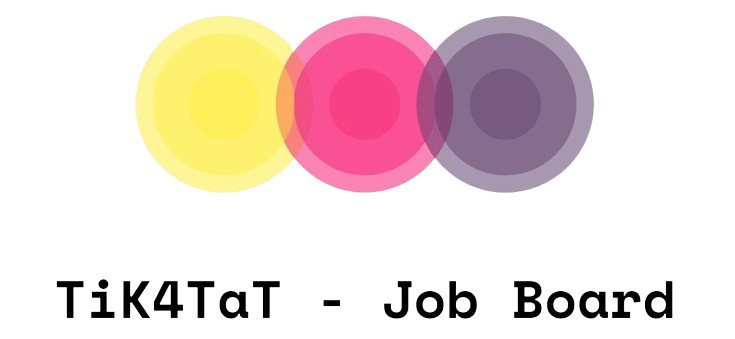rekixi5172
About Company
Strategies to Manage Time Constraints and Overcome Writer’s Block in Psychology Writing Services
Psychology writing services, whether for academic, professional, or personal purposes, often face unique challenges, such as strict deadlines and creative blocks. Balancing the demand for high-quality, insightful content while adhering to time constraints can create significant pressure. Writer’s block, a common phenomenon among writers, exacerbates these challenges by delaying productivity and hindering the flow of ideas. To maintain efficiency and creativity in psychology writing, it’s crucial to implement effective strategies to manage time and combat writer’s block. In this article, we will explore various techniques to overcome these obstacles and improve overall writing productivity.
1. Understanding the Causes of Writer’s Block
Writer’s block can stem from several factors, especially in psychology writing, which requires critical thinking, analysis, and precision. Some common causes include:
- Perfectionism: Trying to craft the perfect sentence or paragraph can halt progress.
- Fear of Criticism: Anxiety about how your writing will be received can create mental barriers.
- Fatigue or Burnout: Continuous writing without adequate breaks can lead to exhaustion, making it harder to produce quality work.
- Lack of Focus: Distractions, whether digital or environmental, can interfere with a writer’s ability to concentrate.
Recognizing the root cause of your writer’s Psychology writing Services block is the first step in overcoming it. Identifying whether perfectionism, fear of failure, or exhaustion is the primary cause will enable you to apply the most effective remedy.
2. Time Management Strategies for Psychology Writers
Managing time effectively is essential for overcoming the pressures associated with tight deadlines. When time is limited, writing efficiently becomes a necessity. Here are some time management techniques specifically useful for psychology writing services:
- Prioritize Tasks: Break your writing project into smaller, manageable sections. This allows you to prioritize the most critical parts of the work. For instance, if you are writing a research paper, start with sections that require the most time and effort, such as the literature review or discussion.
- Create a Writing Schedule: Allocate specific blocks of time for writing, and stick to this schedule as much as possible. Setting clear deadlines for each section of your writing helps maintain a steady workflow and prevents last-minute rushes. Include breaks in your schedule to avoid burnout.
- Time Blocking: Use time-blocking techniques to divide your day into focused periods. Dedicate uninterrupted time to writing, research, and editing. This technique ensures that you remain productive and avoid multitasking, which can slow down the writing process.
- Set Realistic Goals: Establish clear, achievable goals for each writing session. Instead of aiming to write a large portion of the paper in one go, set small, attainable goals like completing 300-500 words. These smaller tasks are more manageable and provide a sense of accomplishment, which can motivate further progress.
- Use Tools for Efficiency: Technology can be a great aid in managing time. Tools like task management apps, online timers, and bio fpx 1000 assessment 2 note-taking apps can help keep your workflow organized and efficient. For psychology writers, citation management tools like Zotero or Mendeley can save significant time when dealing with research papers and academic writing.
3. Breaking Free from Writer’s Block
Overcoming writer’s block is essential to maintaining a consistent and efficient writing output. Here are strategies to help psychology writers break through mental barriers and reignite their creativity:
- Freewriting: One of the most effective techniques for combating writer’s block is freewriting. Set a timer for 10-15 minutes and write without worrying about grammar, structure, or coherence. The goal is to get words onto the page and bypass the critical part of your mind that causes the block. Afterward, you can refine your writing into more cohesive content.
- Mind Mapping: If you’re stuck on how to organize your ideas, mind mapping can be a powerful tool. Create a visual representation of your thoughts by connecting related concepts. This can help you see connections between ideas and spark inspiration for your writing.
- Change Your Environment: Sometimes, a change of scenery can be enough to refresh your mind and combat writer’s block. Try writing in a different location, whether it’s a quiet café, a library, or a park. New environments can stimulate creativity and help reset your focus.
- Break Large Projects into Smaller Tasks: Facing a large writing project all at once can feel overwhelming, which contributes to writer’s block. Break down your project into smaller, bite-sized tasks, such as outlining, researching com fpx 1150 assessment 4 specific topics, or drafting individual paragraphs. Completing small tasks can build momentum and make the overall project feel less daunting.
- Seek Inspiration from Other Writers: Reading articles, research papers, or books related to psychology writing can stimulate your own creativity. Sometimes, seeing how other writers approach similar topics can help you overcome your block and spark new ideas for your work.
4. Incorporating Breaks and Rest
A key factor in preventing both time constraints and writer’s block is knowing when to take breaks. Pushing yourself to work for extended periods without rest can lead to burnout, diminishing your productivity and creativity. To maintain a high level of writing quality, it’s essential to incorporate regular breaks and self-care practices into your routine.
- Pomodoro Technique: This time management method involves working in short, focused intervals (typically 25 minutes) followed by a short break. After four intervals, take a longer break. This approach allows you to stay concentrated while also preventing burnout.
- Active Breaks: During your breaks, engage in activities that refresh your mind and body. Stretching, walking, or practicing mindfulness exercises can help alleviate mental fatigue and improve focus when you return to writing.
- Practice Self-Care: Ensuring you get enough sleep, eat nutritious meals, and engage in physical activity can have a his fpx 1150 assessment 3 profound impact on your mental clarity and energy levels. Writers often neglect self-care during busy periods, but maintaining a healthy lifestyle is essential for sustained productivity and creativity.
5. Leveraging Peer Feedback and Collaboration
Psychology writing can often benefit from collaboration, especially when you feel stuck or overwhelmed. Engaging with peers, mentors, or colleagues can provide fresh perspectives and valuable insights.
- Seek Peer Feedback: Sharing your drafts with others can help you gain new insights into your work. Peer feedback can highlight areas where your argument may be unclear or where additional information is needed. Additionally, discussing your work with others can help overcome writer’s block by sparking new ideas.
- Collaborative Writing: In some cases, working with a co-author or collaborator can relieve some of the pressure. In psychology writing services, collaboration can allow writers to divide tasks based on strengths and expertise. This shared workload can reduce time constraints and enhance the overall quality of the writing.
- Join Writing Groups: If you frequently struggle with writer’s block, consider joining a writing group. Engaging with a community of writers can provide motivation, support, and accountability. Writing groups can also offer valuable feedback and the opportunity to discuss challenges with like-minded individuals.
6. Using Outlines and Templates
Outlines and templates can be a writer’s best friend when dealing with time constraints and writer’s block. Developing an outline before you start writing provides a roadmap for your content, making it easier to structure your thoughts and stay on track.
- Create a Detailed Outline: Before diving into your writing, create an outline that includes your main points, subpoints, and supporting evidence. A detailed outline helps you stay organized and ensures that your writing has a clear direction.
- Use Templates: If you frequently write the same types of documents (such as research papers, case studies, or reports), consider creating templates. These pre-structured documents can save time by providing a format to follow, allowing you to focus on the content rather than structure.
Conclusion
Psychology writing services are often subject to tight deadlines and high expectations, making it essential for writers to manage their time effectively and overcome writer’s block. By adopting strategies such as freewriting, mind mapping, time-blocking, and using templates, writers can improve their productivity and creativity. Incorporating breaks, self-care, and collaboration further supports the writing process by preventing burnout and enhancing the overall quality of work. With the right approach, writers can overcome both time constraints and writer’s block to produce high-quality, insightful psychology writing consistently.


